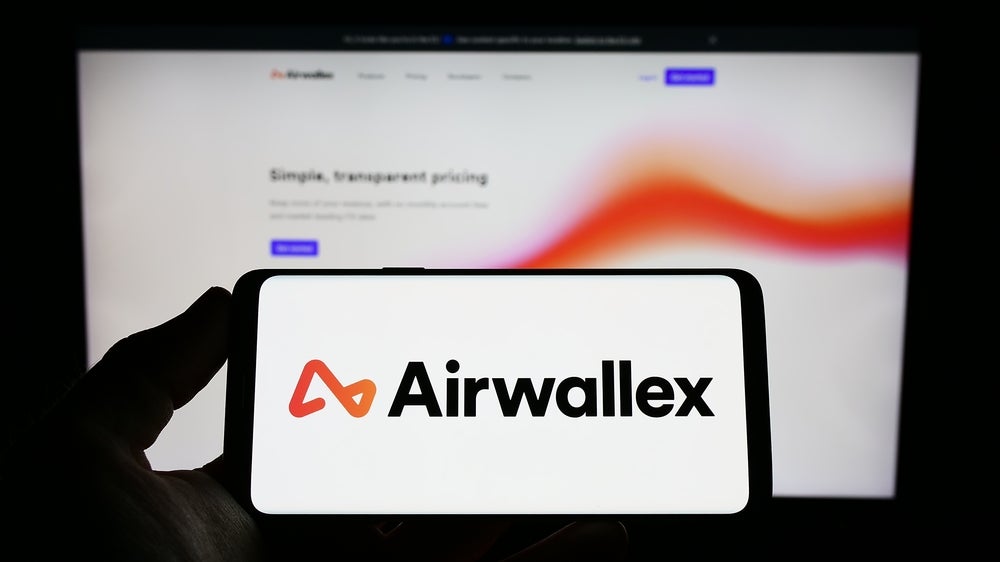Electronics Payments International lists the top five terms tweeted on payments tech in Q3 2021, based on data from GlobalData’s Banking & Payments Influencer Platform.
The top trends are the most mentioned terms or concepts among Twitter discussions of more than 150 payments tech experts tracked by GlobalData’s Banking & Payments Influencer platform during the third quarter (Q3) of 2021.
1. Fintech – 2,856 mentions
Technology firm Bullish’s plans to go public, financial technology company PayPal revamping its app with new services, and news that a European country is expected to become cashless first were some of the popular discussions on fintech in Q3 2021.
Brock Pierce, CEO of information technology company Helios, shared an article on plans of Bullish, a technology company focused on financial services, to go public through a merger with a blank check company Far Peak Acquisition Corporation. A part of the blockchain software company Blockone, Bullish is looking to launch its own regulated cryptocurrency exchange. The merger had a proforma equity value of $9.0bn at $10 a share at the time of signing. The transaction is expected to be completed by the end of 2021, subject to other regulatory approvals and closing conditions, the article noted.
Fintech also trended in discussions around how PayPal’s expansion of services through its app can become a threat to banks in an article shared by Jim Marous, co-publisher of an online publication The Financial Brand. PayPal is revamping its app to include investment, banking, crypto, communication, and shopping services. The company believes that the new services will be critical to reaching its one billion active daily users target, the article detailed.
In another tweet, Theodora Lau, founder of financial consulting services provider Unconventional Ventures, shared an article on which European country is leading in the race to become cashless first. The article noted that the UK, South Korea, Norway, Poland, Finland, Sweden and Czech Republic, are strong contenders in the race for a cashless society, although no country has completely abandoned cash transactions.
How well do you really know your competitors?
Access the most comprehensive Company Profiles on the market, powered by GlobalData. Save hours of research. Gain competitive edge.

Thank you!
Your download email will arrive shortly
Not ready to buy yet? Download a free sample
We are confident about the unique quality of our Company Profiles. However, we want you to make the most beneficial decision for your business, so we offer a free sample that you can download by submitting the below form
By GlobalDataSweden and South Korea are currently leading the race globally, while the former is leading its cashless strategy in Europe, the article detailed. Sweden’s central bank Riksbank, for instance, reported that cash transactions declined to 9% in 2020 compared to 39% in 2010. Furthermore, data from the European Union’s statistical office Eurostat revealed that 82% of the Swedish population resorted to online purchases.
Big announcement yesterday from @B1 and @Bullish
"Bullish, a unit of blockchain software company Blockone, plans to launch a regulated crypto exchange later this year."#NYSE #publiccompany #investing #trading #fintech https://t.co/mTJBLL57ZN— Brock Pierce (@brockpierce) July 10, 2021
2. Cryptocurrency / Crypto Currency – 1,588 mentions
The top banks that are investing in crypto and blockchain companies, investment banker JPMorgan becoming the first major bank to offer cryptocurrency funds to retail wealth clients, and automotive company Tesla CEO Elon Musk’s views on the US government regulating the crypto market were some of the popular discussions in Q3.
Chris Gledhill, an independent fintech expert, shared an article on investment by leading banks in crypto and blockchain companies in 2021. About 55 banks out of the top 100 banks, ranked based on funds under management, have invested in blockchain or cryptocurrency companies either directly or through subsidiaries, the article noted. Barclays, Citigroup, Goldman Sachs, JPMorgan Chase, and BNP Paribas made the highest number of cryptocurrency investments.
The term was also quoted by Barry Silbert, founder and CEO of venture capital firm Digital Currency Group, in a tweet about JPMorgan becoming the first major bank to offer cryptocurrency funds to retail wealth clients. The bank now allows its wealth customers, including those who directly trade on the Chase app, to purchase and sell five cryptocurrency products. Four of these crypto products are from Grayscale Investments, while one is from Osprey Funds. The advisors at JPMorgan can buy or sell crypto products on behalf of clients’ requests, but they cannot promote the products, the article highlighted.
In another tweet, Christopher Burniske, partner at venture capital and private equity firm Placeholder, shared an article on how Elon Musk is opposed to the US government’s plans to regulate the crypto market. Musk stated that cryptocurrency is meant to reduce the power of the centralised government, adding that the government could impede the sector’s progression. Tesla had announced earlier this year that the company had invested $1.5bn in Bitcoin, the article detailed. The value of the holdings increased to approximately $2.5bn in the second quarter of the year, as Bitcoin prices increased.
Top Banks Investing in #Crypto & #Blockchain Companieshttps://t.co/Wp3h3wKcGL #fintech pic.twitter.com/eQ1ZFO1U8j
— Chris Gledhill | gledhill.eth (@cgledhill) August 15, 2021
3. Open banking – 527 mentions
Traditional banking business models being transformed by open banking, growth of account-to-account (A2A) payments, and a collaboration between automated payments platform Serrala and open banking platform Tink were some of the trending discussions in the third quarter.
Tolga Tavlas, first vice president of business operational excellence at banking group UniCredit, shared an article on how open banking is transforming traditional banking business models. The article noted that open banking strategy of financial institutions will deliver innovative customer experiences and generate new revenue streams for businesses.
The open banking strategy utilises open application programming interfaces (APIs) giving more control to customers on how their data is used, the article noted. Open banking has provided a basis for improved digital transformation, reskilling programmes, data modernisation, decentralisation approaches, and fintech partnerships, which will ultimately benefit the consumer.
Discussions on open banking also revolved around the projected growth in A2A payments, according to an article shared by Florian Graillot, founding partner of venture capital and private equity firm astoryaVC. Open banking has transformed the payments landscape with A2A payments, which directly move funds from the payer’s bank to a merchant’s bank without any banking barriers. A2A payments also have excellent conversion rates due to seamless experience they offer for users and zero data entry, the article noted. Payments through real-time APIs will account for more than half of all the B2B transactions by 2023, compared to traditional modes of payment, according to the article.
In another tweet, banking and payments consultant Faisal Khan shared an article on the collaboration between Serrala and Tink for direct billing through bank apps. The partnership is expected to expand the reach of the two companies to clients across every channel, making billing easy, quick, accurate, and cost-effective. The collaboration is also expected to help Serrala in providing payments powered by open banking to customers in Europe, the article detailed. The partnership follows Tink’s collaboration with payments solutions provider Lemonway on the Pay By Bank product, which facilitates secure and quick transactions for customers.
Open Banking Transforming Business Models Forever – The Financial Brand https://t.co/ngAOVTYzyV #openbanking #apitalism #psd2
— Tolga TAVLAS (@ttavlas) August 23, 2021
4. Decentralisation – 276 mentions
Crypto trading platform ShapeShift establishing itself as a decentralised autonomous organisation (DAO), decentralised token exchange platform developer Uniswap Labs’ move to restrict investor access to certain tokens, and the importance of decentralised finance (DeFi) were popularly discussed in Q3 2021.
Erik Voorhees, founder of ShapeShift, shared an article on ShapeShift dissolving its legal corporation and embracing a blockchain structure called the DAO in July 2021. Voorhees believes that regulations may not apply to the company, as theoretically the law is not valid to a self-running leaderless entity on the blockchain. The article detailed that ShapeShift will not control the DAO, as the company will be dissolved and operate like the Bitcoin without any central controlling body.
Decentralisation was also discussed by Spiros Margaris, board member at the venture capitalist firm Margaris Ventures. Margaris shared an article on Uniswap launching a DeFi protocol to restrict investor access to certain tokens on its crypto trading platform raising concerns on whether DeFi can remain decentralised. Uniswap made the move as a result of changes in the regulatory landscape. Gary Gensler, chairman of the US Securities and Exchange Commission, recently stated that stablecoin tokens attached to traditional securities may constitute securities that will be subject to regulatory oversight, the article noted.
In another tweet, Theodora Lau shared an article on the importance of the DeFi ecosystem consisting of blockchain products and services. The article noted that DeFi maybe in its initial stages but has helped in the growth of its backend infrastructure, the Ethereum decentralised blockchain platform. Ethereum settled $1.5tn in transactions in the second quarter of this year and enabled businesses and individuals using platforms such as Uniswap to trade volumes equivalent to about 30% of crypto firm Coinbase’s volumes.
This is one of the best articles yet written on ShapeShift’s decentralization; the reasons, the risks, and the rewards.
It’s ultimately about a new model of economic organization.
Kudos to @Ethan_Lou for accuracy and context in a crypto article 👏
— Erik Voorhees (@ErikVoorhees) August 12, 2021
5. Startups – 274 mentions
Crypto-focused social network start-up Minds converting 25% of its cash into cryptocurrencies, payments start-up Rapyd raising $300m, and fintech start-up JustTip launching new tipping machines at restaurants and coffee shops were some of the popular discussions in Q3.
Jeremy Allaire, CEO of cryptocurrency company Circle, shared an article on crypto-aware start-ups investing their cash into digital assets. Minds, for example, is turning 25% of its balance sheet or approximately $2.5m into digital currencies, the article detailed. The company allows five million of its users to endorse their posts and make transactions through digital tokens. Founder and CEO of the company Bill Ottman stated that the move signified approximately one-fourth of the $10m Series B funding the company raised in June this year.
Startups was also discussed with reference to payment platform Rapyd raising $300m in a Series E funding round, according to an article shared by Alex Jiménez, chief strategy officer at financial services firm Finalytics.ai. Rapyd manages payments for companies such as Ikea and Uber and plans to use the funds towards expansions and acquisitions in Asia and Latin America.
The start-up raised the funding after acquiring Icelandic payments provider Valitor for $100m in July and raising $300m in funds in January this year. Arik Shtilman, co-founder and CEO of Rapyd, stated that the company’s revenues tripled since October 2020. He added that the Valitor acquisition will help the company in expanding its focus on high-risk sectors such as online gaming and cryptocurrency.
In another tweet, Chris Gledhill shared an article on JustTip developing a new technology that allows customers to tip easily while paying through cards or other cashless methods. The company’s new ‘tap to tip’ machines at merchant terminals allow customers to tip via their phones or bank cards without having to scan QR codes or enter card pin details. The machines are designed to transfer the tips directly to servers of coffee shops and restaurants rather than to the business account, the article highlighted.
1/2 Love seeing this — more and more crypto-aware startups deploying treasury/cash into crypto and USDC yield (Circle Yield). https://t.co/pP3uOESyFc
— Jeremy Allaire (@jerallaire) September 17, 2021










Related Company Profiles
Citigroup Inc
BNP Paribas SA
Tesla Inc
The Goldman Sachs Group Inc
Barclays Plc